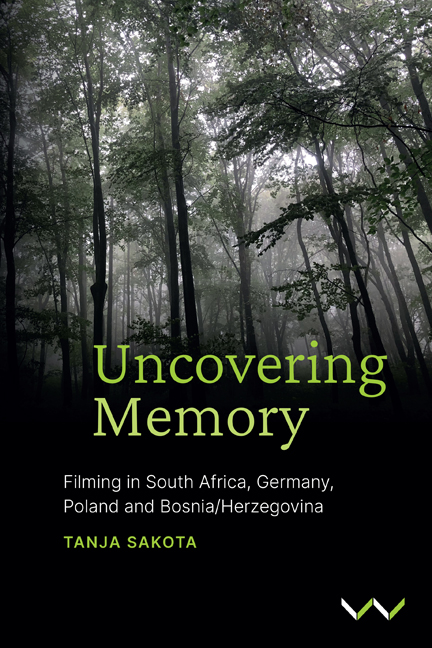Book contents
- Frontmatter
- Dedication
- Contents
- List of Images
- Foreword
- Acknowledgements
- Map of Africa and Europe
- Practice-Based Research, Teaching and Learning
- Part I Working With Students: Cape Town, Johannesburg, Berlin
- Part II Working With Peers: Constitution Hill, Johannesburg
- Part III Working With Myself: Poland, Germany, Bosnia/Herzegovina, South Africa
- Moving Forward
- Film Credits
- Glossary of Terms
- Notes
- Bibliography
- Index
Chapter 18 - Excavating ghosts: Perpetrators and victims
Published online by Cambridge University Press: 24 November 2023
- Frontmatter
- Dedication
- Contents
- List of Images
- Foreword
- Acknowledgements
- Map of Africa and Europe
- Practice-Based Research, Teaching and Learning
- Part I Working With Students: Cape Town, Johannesburg, Berlin
- Part II Working With Peers: Constitution Hill, Johannesburg
- Part III Working With Myself: Poland, Germany, Bosnia/Herzegovina, South Africa
- Moving Forward
- Film Credits
- Glossary of Terms
- Notes
- Bibliography
- Index
Summary
MY PARENTS
Until now my narrative has focused on fragments of memory and events. I have used this method deliberately so that it reflects the way we remember. Memory invades our thoughts and it disrupts our present consciousness. It never comes to us in a linear narrative. I have mimicked this process in my narration of my journey. I have come to the point, however, where for the sake of clarity I have to turn to narrative to create a context.
Throughout this journey I have focused on my mother's lineage because it links the different parts of this book. It creates the foundation of my research and it will become increasingly clear why my workshops have taken place in Johannesburg and Berlin. I explain my research method fully at the end of my journey in Chapter 21 so that you as my reader experience the process of practice-based research not only through the films but also through your reading of this book. The deliberation will come at the end.
As I write, it becomes increasingly clear that I have to incorporate my father's narrative because it is essential to my existence in South Africa and provides a good framework for the next part of my journey, which critically deliberates my perplexity concerning perpetrators and victims. It is through my father's story that it becomes evident that my probe into practice-based research actually started in 1997, many years before my journey to Poland.
My parents met in South Africa but during WW2 they found themselves on opposite sides of the conflict. My mother was born in 1942 in Breslau, in the province Silesia, Germany, and lived at 40 Bergstraße (now within the borders of Poland). My father was born in 1927 in a small village called Kozice, outside Stolac in the province Herzegovina, Yugoslavia (after the breakup of the former Yugoslavia in the mid-1990s the area now falls within the new borders of Bosnia/Herzegovina). I think you are already starting to see a pattern why borders, the reimagining of them and the link to migration are so important to me. Both my parents were born in areas that belonged to countries that no longer exist.
REMEMBERING MY OWN MEMORIES
It is May 1997, Herzegovina.
- Type
- Chapter
- Information
- Uncovering MemoryFilming in South Africa, Germany, Poland and Bosnia/Herzegovina, pp. 239 - 260Publisher: Wits University PressPrint publication year: 2023



